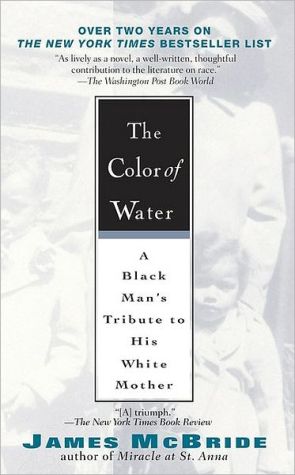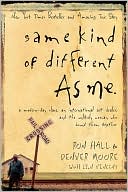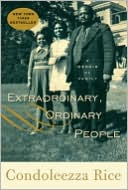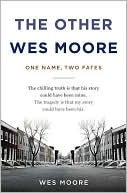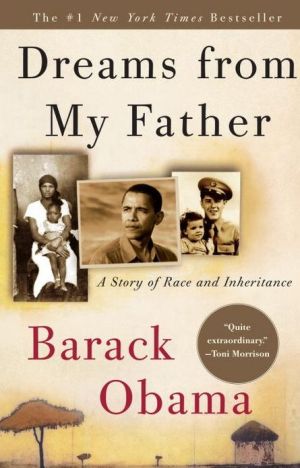The Color of Water: A Black Man's Tribute to His White Mother
James McBride grew up one of twelve siblings in the all-black housing projects of Red Hook, Brooklyn, the son of a black minister and a woman who would not admit she was white. The object of McBride's constant embarrassment and continuous fear for her safety, his mother was an inspiring figure, who through sheer force of will saw her dozen children through college, and many through graduate school. McBride was an adult before he discovered the truth about his mother: The daughter of a failed...
Search in google:
This national bestseller tells the story of James McBride and his mother—a rabbi's daughter, born in Poland and raised in the South, who fled to Harlem, married a black man, founded a church, and put 12 children through college. Unabridged. 6 CDs.Salon - James MarcusAt a time when the relationship between African-Americans and Jews is deeply fissured, The Color of Water reminds us that the two groups have a long history of coexistence -- sometimes within a single person. The author's mother, Ruth Shilsky, was born in Poland in 1920, the daughter of an Orthodox Jewish rabbi. She grew up in rural Virginia, hemmed in by anti-Semitism and small-town claustrophobia, and at the age of 18 she fled to the cultural antipodes of Harlem. There, four years later, she married a black man named Dennis McBride, and since her family promptly disowned her, she launched a second existence as (to quote her son) "a flying compilation of competing interests and conflicts, a black woman in white skin." The lone Caucasian in her Brooklyn housing project, she somehow raised 12 children without ever quite admitting she was white. In retrospect, of course, her son is able to recognize that his parents "brought a curious blend of Jewish-European and African-American distrust and paranoia into our house." However, as children, James McBride and his 11 siblings didn't dwell on questions of their mother's color. Only later, after he became a professional journalist, did McBride feel compelled to tackle the riddle of his heritage. Bit by bit, he coaxed out his mother's story, and her voice -- stoic, funny, and with a matter-of-fact flintiness -- alternates perfectly with his own tale of biracial confusion and self-discovery.
Dead\ I'm dead.\ You want to talk about my family and here I been dead to them for fifty years. Leave me alone. Don't bother me. They want no parts of me and me I don't want no parts of them. Hurry up and get this interview over with. I want to watch Dallas. See, my family, if you had a been part of them, you wouldn't have time for this foolishness, your roots, so to speak. You'd be better off watching the Three Stooges than to interview them, like to go interview my father, forget it. He'd have a heart attack if he saw you, He's dead now anyway, or if not he's 150 years old.\ I was born an Orthodox Jew on April 1, 1921. April Fool's Day, in Poland. I don't remember the name of the town where I was born, but I do remember my Jewish name: Ruchel Dwajra Zylska. My parents got rid of that name when we came to America and changed it to Rachel Deborah Shilsky, and I got rid of that name when I was nineteen and never used it again after I left Virginia for good in 1941. Rachel Shilsky is dead as far as I'm concerned, She had to die in order for me, the rest me, to live.\ My family mourned me when I married your father. They said kaddish and sat shiva. That's how Orthodox Jews mourn their dead. They say prayers, turn their mirrors down, sit on boxes for seven days, and cover their heads. It's a real workout, which is maybe why I'm not a Jew now. There were too many rules to follow, too many forbiddens and "you can'ts" and "you mustn'ts," but does anybody say they love you? Not in my family we didn't. We didn't talk that way. We said things like, "There's a box in there for the nails," or my father would say, "Be quiet while I sleep."\ My father's name was Fishel Shilsky and he was an Orthodox rabbi. He escaped from the Russian army and snuck over the Polish border and married my mother in an arranged marriage. He used to say he was under fire when he ran off from the army, and his ability to slick himself out of anything that wasn't good for him stayed with him for as long as I knew him. Tateh, we called him, That means father in Yiddish. He was a fox, especially when it came to money. He was short, dark, hairy, and gruff. He wore a white shirt, black pants, and a tallis on his shirtsleeve, and that was like his uniform, He'd wear those black pants till they glazed and shined and were ripe enough to stand in the corner by themselves, but God help you if those pants were coming your way in a hurry, because he was nobody to fool with, my father. He was hard as a rock.\ My mother was named Hudis and she was the exact opposite of him, gentle and meek. She was born in 1896 in the town of Dobryzn, Poland, but if you checked there today, nobody would remember her family because any Jews who didn't leave before Hitler got through with Poland were wiped out in the Holocaust. She was pretty about the face. Dark hair, high cheekbones, but she had polio. It paralyzed her left side and left her in overall poor health. Her left hand was useless. It was bent at the wrist and held close to her chest, She was nearly blind in her left eye and walked with a severe limp, dragging her left foot behind her. She was a quiet woman, my sweet Mameh, That's what we called her, Mameh. She's one person in this world I didn't do right by....
CONTENTS 1. Dead..............................................................1 2. The Bicycle.......................................................5 3. Kosher...........................................................15 4. Black Power......................................................21 5. The Old Testament................................................37 6. The New Testament................................................45 7. Sam..............................................................57 8. Brothers and Sisters.............................................65 9. Shul.............................................................79 10. School..........................................................85 11. Boys...........................................................107 12. Daddy..........................................................117 13. New York.......................................................129 14. Chicken Man....................................................137 15. Graduation.....................................................153 16. Driving........................................................159 17. Lost in Harlem.................................................169 18. Lost in Delaware...............................................177 19. The Promise....................................................193 20. Old Man Shilsky................................................203 21. A Bird Who Flies...............................................213 22. A Jew Discovered...............................................219 23. Dennis.........................................................231 24. New Brown......................................................249 25. Finding Ruthie.................................................259 Epilogue...........................................................279 Thanks and Acknowledgments.........................................287
\ From Barnes & NobleAs a young black boy in Brooklyn, James McBride wondered why his mother looked different. When he asked her if she was white or black, she would answer, "I'm light-skinned." Finally, when he had become an adult, she told him her story. She was a rabbi's daughter, born in Poland, raised in the American South. McBride's tribute, now published in a 10th anniversary edition, has become a classic in healthy race relations, a topic we are all apparently still learning.\ \ \ \ \ James MarcusAt a time when the relationship between African-Americans and Jews is deeply fissured, The Color of Water reminds us that the two groups have a long history of coexistence -- sometimes within a single person. The author's mother, Ruth Shilsky, was born in Poland in 1920, the daughter of an Orthodox Jewish rabbi. She grew up in rural Virginia, hemmed in by anti-Semitism and small-town claustrophobia, and at the age of 18 she fled to the cultural antipodes of Harlem. There, four years later, she married a black man named Dennis McBride, and since her family promptly disowned her, she launched a second existence as (to quote her son) "a flying compilation of competing interests and conflicts, a black woman in white skin." The lone Caucasian in her Brooklyn housing project, she somehow raised 12 children without ever quite admitting she was white. In retrospect, of course, her son is able to recognize that his parents "brought a curious blend of Jewish-European and African-American distrust and paranoia into our house." However, as children, James McBride and his 11 siblings didn't dwell on questions of their mother's color. Only later, after he became a professional journalist, did McBride feel compelled to tackle the riddle of his heritage. Bit by bit, he coaxed out his mother's story, and her voice -- stoic, funny, and with a matter-of-fact flintiness -- alternates perfectly with his own tale of biracial confusion and self-discovery.\ — Salon\ \ \ Library JournalThe need to clarify his racial identity prompted the author to penetrate his veiled and troubled family history. Ruth McBride Jordan concealed her former life as Rachel Deborah Shilsky, the daughter of an Orthodox Jewish rabbi, from her children. Her grim upbringing in an abusive environment is left behind when she moves to Harlem, marries a black man, converts to Christianity, and cofounds a Baptist congregation with her husband. The courage and tenacity shown by this twice-widowed mother who manages to raise 12 children, all of whom go on to successful careers, are remarkable. Highly recommended for public libraries.-Linda Bredengerd, Univ. of Pittsburgh Lib., Bradford, Pa.\ \ \ \ \ MirabellaThe Color of Water [will] make you proud to be a member of the human race.\ \ \ \ \ NY Times Book Review[A] triumph.\ \
